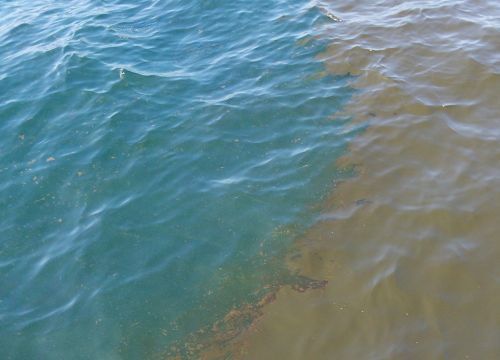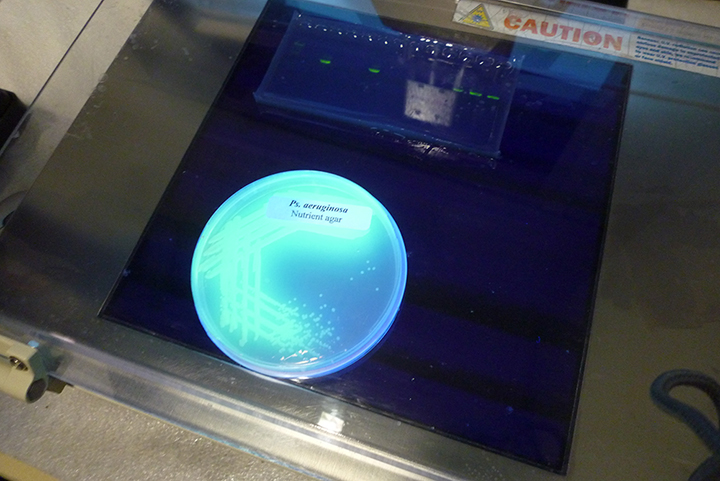Expert Commercial Cleaning Solutions
Your trusted partner for spotless workspaces every time.

Your trusted partner for spotless workspaces every time.


For over 45 years we have specialized in unparalleled, daily, detailed cleaning of new car dealerships, food processing & manufacturing facilities and general offices using bio-chemistry with a unique blend of microbes & enzymes applied by our specialized equipment naturally digesting oil, fuel and grease into water & carbon dioxide.

At Professional Cleaning Systems Inc., our mission is to provide exceptional cleaning services tailored to meet the unique needs of each client. We believe in creating a cleaner, healthier environment for businesses.

Microbes are naturally occurring, many species of microbes are beneficial and necessary to the environments homeostasis. Oil Critters Cleaner (further known as OCC Microbes) are beneficial microbes harvested from the oceans floor. OCC Microbes take the hydrocarbon of oil, grease and fuel, eat and digest it and self destruct into a water and carbon dioxide mixture, leaving a clean non-slippery surface. OCC Microbes provide a safer alternative to traditional degreasers.
Microbes coupled with enzymes digest oil, fuel and grease, leaving a clean, residue and slip-free surface, Degreasers mix with oil, fuel and grease will only thin the oil, fuel and grease. but never fully remove it and will always leave a thin slippery residue.
Microbes coupled with enzymes is non-caustic, non-hazardous and does not require any special PPE per the EPA. Gloves and goggles are recommended when mixing as with mixing any liquid cleaning preparation. Traditional degreasers are caustic, hazardous and require special handling per the EPA
Microbes coupled with enzymes can and should be used in multiple applications as it is harmless on any water safe surface or components. Safe to use in manufacturing facilities, repair facilities, customer service areas, food processing areas, offices, medical facilities and in general public areas.
OCC also works excellent in parts washers, on carpets and in sensitive settings. OCC is phenomenal at digesting petroleum based clogs.
Microbes coupled with enzymes takes away the food source of bad bacteria resulting in less foul odors. It also reduces biochemical oxygen demand, chemical oxygen demand and total suspended solids while removing toxic chemicals from your environment. it is non-pathogenic and non-toxic making it harmless to humans, plant, animal and marine life. It neutralizes spilled fuel and flammable vapors. The deep cleaning action reduces risk of slip & falls. Has a Ph of 7.
OCC Microbes save money on equipment and replacement parts that corrode when using traditional degreasers and cleaners.
Can also safely be used on carpets, fabric and any water safe materials
OCC Microbe Solution has many off-label uses as well. Removing labels, laundry, washing siding on houses, cleaning carpets, the possibilities are endless.
 There are at least seven species of ocean bacteria that can survive by eating oil and nothing else. However, usually only a small number of oil-eating bacteria live in any given part of the ocean, and it takes a few days for their population to increase to take advantage of their abundant new food source during an oil spill. (NOAA)
There are at least seven species of ocean bacteria that can survive by eating oil and nothing else. However, usually only a small number of oil-eating bacteria live in any given part of the ocean, and it takes a few days for their population to increase to take advantage of their abundant new food source during an oil spill. (NOAA)
This is a post by Dalina Thrift-Viveros, a chemist with NOAA's Office of Response and Restoration.
JUNE 5, 2015 -- Would you look at crude oil and think, "Mmm, tasty..."? Probably not.
But if you were a microbe living in the ocean you might have a different answer.
There are species of marine bacteria in several families, including Marinobacter, Oceanospiralles, Pseudomonas, and Alkanivorax, that can eat compounds from petroleum as part of their diet. In fact, there are at least seven species of bacteria that can survive solely on oil [1].
These bacteria are nature's way of removing oil that ends up in the ocean, whether the oil is there because of oil spills or natural oil seeps. Those of us in the oil spill response community call this biological process of removing oil "biodegradation."
Communities of oil-eating bacteria are naturally present throughout the world's oceans, in places as different as the warm waters of the Persian Gulf [2] and the Arctic conditions of the Chukchi Sea north of Alaska [3].
Each community of bacteria is specially adapted for the environment where it is living, and studies have found that bacteria consume oil most quickly when they are kept in conditions similar to their natural environments [4]. So that means that if you took Arctic bacteria and brought them to an oil spill in the Gulf of Mexico, they would not eat the oil as quickly as the bacteria that are already living in the Gulf. You would get the same result in the reverse case, with the Arctic bacteria beating out the Gulf bacteria at an oil spill in Alaska.
Other factors that affect how quickly bacteria degrade oil include the amount of oxygen and nutrients in the water, the temperature of the water, the surface area of the oil, and the kind of oil that they are eating [4][5][6]. That means the bacteria that live in a given area will consume the oil from a spill in the summer more quickly than a spill in the winter, and will eat light petroleum products such as gasoline or diesel much more quickly than heavy petroleum products like fuel oil or heavy crude oil.
 This bacteria, fluorescing under ultraviolet light in a petri dish, is Pseudomonas aeruginosa. It has been used during oil spills to break down the components of oil. (Credit: Wikimedia user Sun14916(link is external)/Creative Commons Attribution-ShareAlike 3.0 Unported license(link is external))
This bacteria, fluorescing under ultraviolet light in a petri dish, is Pseudomonas aeruginosa. It has been used during oil spills to break down the components of oil. (Credit: Wikimedia user Sun14916(link is external)/Creative Commons Attribution-ShareAlike 3.0 Unported license(link is external))
Asphalt, the very heaviest component of crude oil, is actually so difficult for bacteria to eat that we can use it to pave our roads without worrying about the road rotting away.
People are often interested in the possibility of using bacteria to help clean up oil spills, and most oil left in the ocean long enough is consumed by bacteria.
However, most oil spills last only a few days, and during that time other natural "weathering" processes, such as evaporation and wave-induced breakup of the oil, have a much bigger effect on the appearance and location of the oil than bacteria do. This is because there are usually only a small number of oil-eating bacteria in any given part of the ocean, and it takes a few days for their population to increase to take advantage of their abundant new food source.
Because of this lag time, biodegradation was not originally included in NOAA's oil weathering software ADIOS. ADIOS is a computer model designed to help oil spill responders by predicting how much of the oil will stay in the ocean during the first five days of a spill.
However, oil spills like the 2010 Deepwater Horizon well blowout, which released oil for about three months, demonstrate that there is a need for a model that can tell us what would happen to the oil over longer periods of time. My team in the Emergency Response Division at NOAA's Office of Response and Restoration has recognized that. As a result, version 3 of ADIOS, due to be released later in 2015, will take into account biodegradation.
My team and I used data published in scientific journals on the speed of oil biodegradation under different conditions to develop an equation that can predict how fast the components of oil will be consumed, and how the speed of this process can change based on the surface area-to-mass ratio of the oil and the climate it is in. A report describing the technical details of the model will be published in the upcoming Proceedings of the Arctic and Marine Oilspill Program(link is external) Technical Seminar, which will be released after the June conference.
Including oil biodegradation in our ADIOS software will provide oil spill responders with an even better tool to help them make decisions about their options during a response. As part of the team working on this project, it has provided me with a much greater appreciation for the important role that oil-eating bacteria play in the long-term effort to keep our oceans free of oil.
I know I'm certainly glad they think oil is delicious.
[1] Yakimov, M.M., K.N. Timmis, and P.N. Golyshin. "Obligate oil-degrading marine bacteria," Current Opinion in Biotechnology, 2007, 18(3), pp. 257-266.
[2] Hassanshahian, M., G. Emtiazi, and S.Cappello. "Isolation and characterization of crude-oil-degrading bacteria from the Persian Gulf and the Caspian Sea," Marine Pollution Bulletin, 2012, 64, pp. 7–12.
[3] McFarlin, K.M., R.C. Prince, R. Perkins, and M.B. Leigh. "Biodegradation of Dispersed Oil in Arctic Seawater at -1°C," PLoS ONE, 2014, 9:e84297, pp. 1-8.
[4] Atlas, R.M. "Petroleum Biodegradation and Oil Spill Bioremediation," Marine Pollution Bulletin, 1995, 31, pp. 178-182.
[5] Atlas, R.M. and T.C. Hazen. "Oil Biodegradation and Bioremediation: A Tale of the Two Worst Spills in U.S. History," Environmental Science & Technology, 2011, 45, pp. 6709-6715.
[6] Head, I.M., D.M. Jones, and W.F.M. Röling, "Marine microorganisms make a meal of oil," Nature Reviews Microbiology, 2006, 4, pp. 173-182.
Last updated Monday, December 9, 2024 3:27pm PST
e
National Oceanic and Atmospheric Administration | US Department of Commerce(link is external) | USA.gov(link is external)

Most manufacturing fires start with the ignition of oil and or grease. Commercial degreasers leave an oil/grease residue creating a fire hazard that spreads very quickly

Residue from Oil & grease left behind from commercial degreasers cause slippery floors, slippery floors create fall risks and fall risks create injury and lawsuit risks

Saves time & labor on hazard clean up, hazardous, caustic degreasers, socks, pads, granular absorbents and disposal costs.

Oil and grease create clogged, slow drains and water backups costing your business time and money on costly repairs.

Oil and grease cause foul odors and degreasers used to clean them create harmful vapors that affect employees and customers

Oil and grease residual are often common causes of fines or non-compliance warnings and bad press
Professional Cleaning Systems Inc. is committed to maintaining a safe environment for your company
Real time consumption of oil using the unique blend of microbes and enzymes

Contact us to schedule a walk thru evaluation of how our services can benefit your company. We take pride in what we do and we do not take on more than our team can handle, contact us to check our availability.

OCC Microbes 5 gallon cleaning solution.
Contact us for more info or to purchase.

OCC Microbes 55 gallon drum cleaning solution, shipped directly to your location. Contact us for more info or to purchase.
Welcome to Professional Cleaning Systems Inc. - the premier choice for top-notch commercial cleaning services. Our highly-skilled team of professionals is committed to delivering exceptional cleaning solutions that exceed your expectations. Get in touch with us today to experience the difference!
We stay in constant communication with our customers until the job is done. To get a free quote, or if you have questions or special requests, just drop us a line. We do not take on more than our team can handle, contact us today to check our availability.
Today | By Appointment |
Sign up to hear from us about new services and packages.
We use cookies to analyze website traffic and optimize your website experience. By accepting our use of cookies, your data will be aggregated with all other user data.